WFDD staff and Wake Forest communicators inspire future journalists on campus visit
WFDD’s legacy of storytelling began more than 75 years ago, when two Wake Forest students turned their passion for radio into what became North Carolina’s first public radio station. That same commitment to curiosity, community, and learning continues today—through programs that connect professional communicators with aspiring journalists.
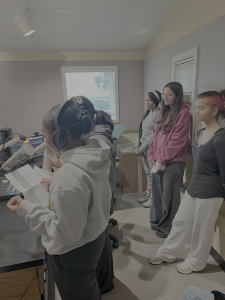
Recently, WFDD staff and Wake Forest communications professionals welcomed a group of R.J. Reynolds High School students to campus for a day of exploration and inspiration. The students are part of HiveⓇ, WFDD’s community outreach program that trains local high schoolers and middle schoolers in audio journalism.
The visit, led by HiveⓇ program coordinator Abē Levine in partnership with Parker Hunt, Reynolds High School journalism teacher, gave students a behind-the-scenes look at the University and careers in communication. Levine, who also teaches a Radio 101 course at Reynolds, led students through the WFDD studios to observe live broadcasts and practice their own radio voice. WFDD’s Bethany Chafin, shared insights into creating compelling stories and offered guidance on pathways in journalism, including her own from Wake Forest English major to editorial director.
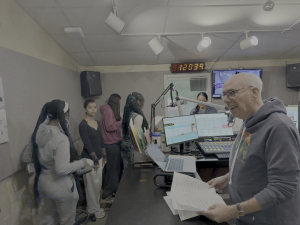
One student, after seeing WFDD host Neal Charnoff on air, said the experience “fueled my dream of becoming a sports broadcaster.”
The visit concluded with a panel discussion featuring Wake Forest communicators DeeDe Pinckney Holly, director of internal communications; Kelly Greene, managing editor of Wake Forest Magazine; and David Ford, WFDD general assignment reporter. They were joined by local journalist Michael Hewlett of The Assembly and Ella Klein, Wake Forest senior and editor-in-chief of the Old Gold & Black.
Panelists reflected on the responsibility of journalists to use their voice and platform for good, while maintaining balance in their reporting. Klein described her growth as an intrepid student reporter—learning from failure and “showing up at sources’ doorsteps” to get the story right.
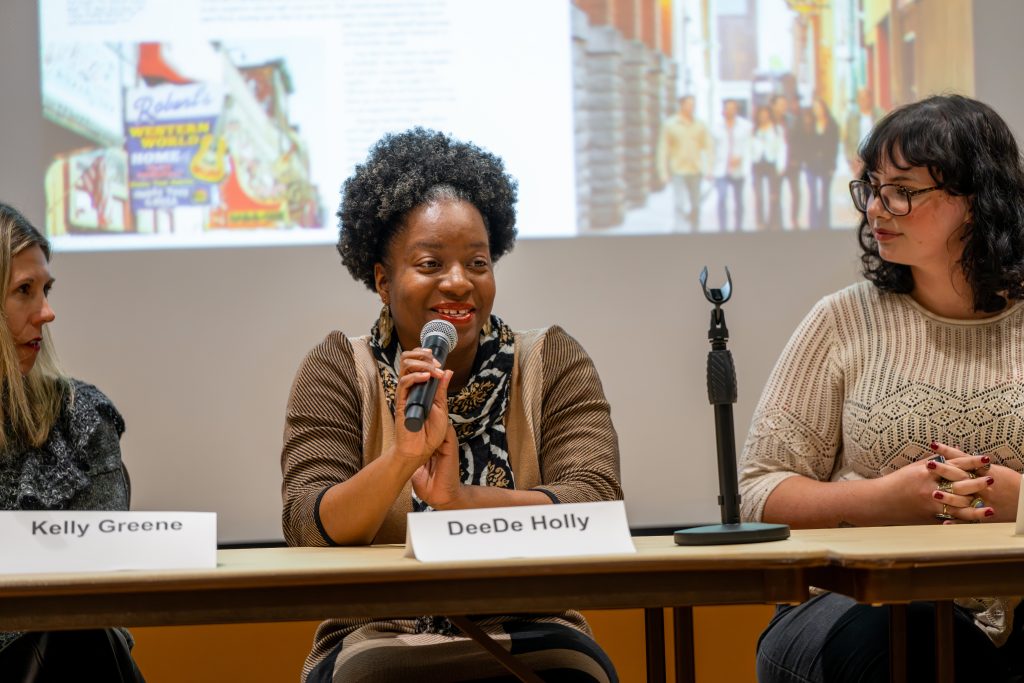
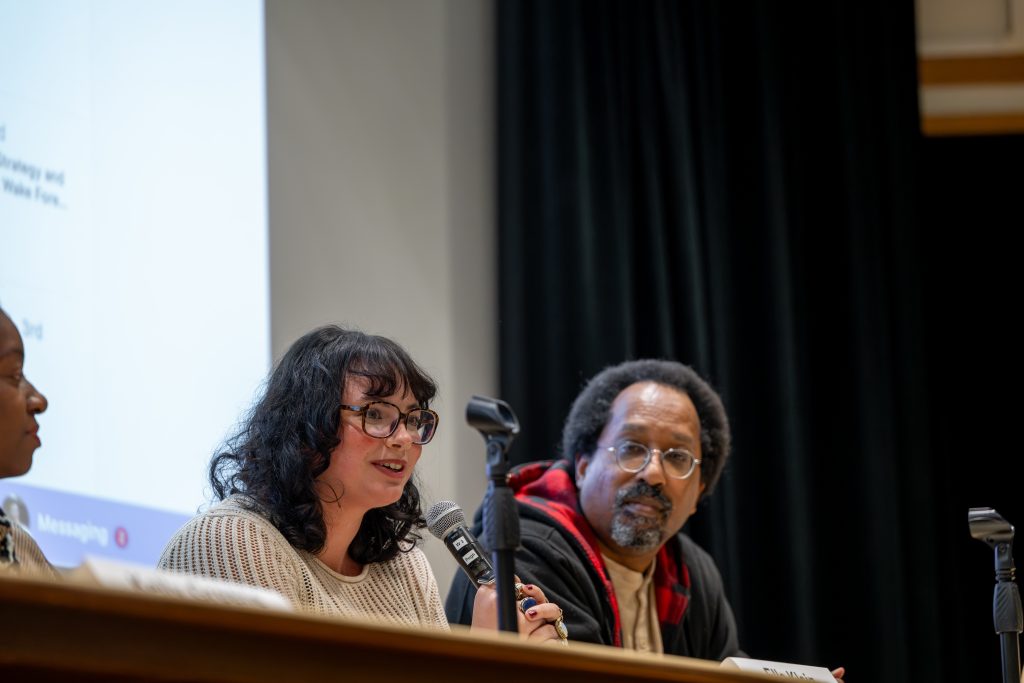
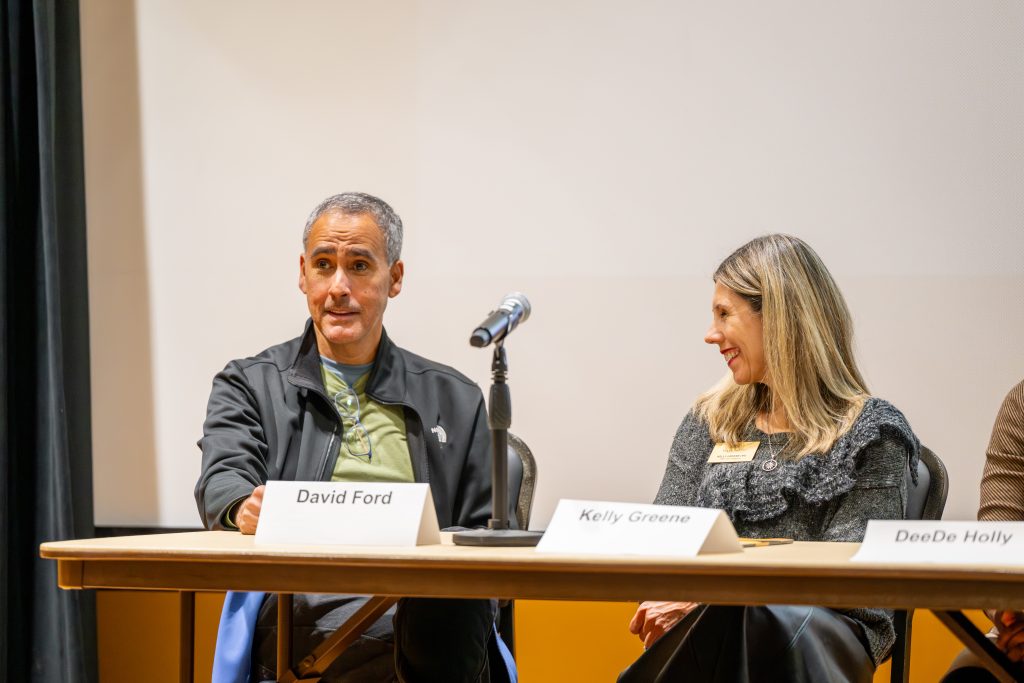
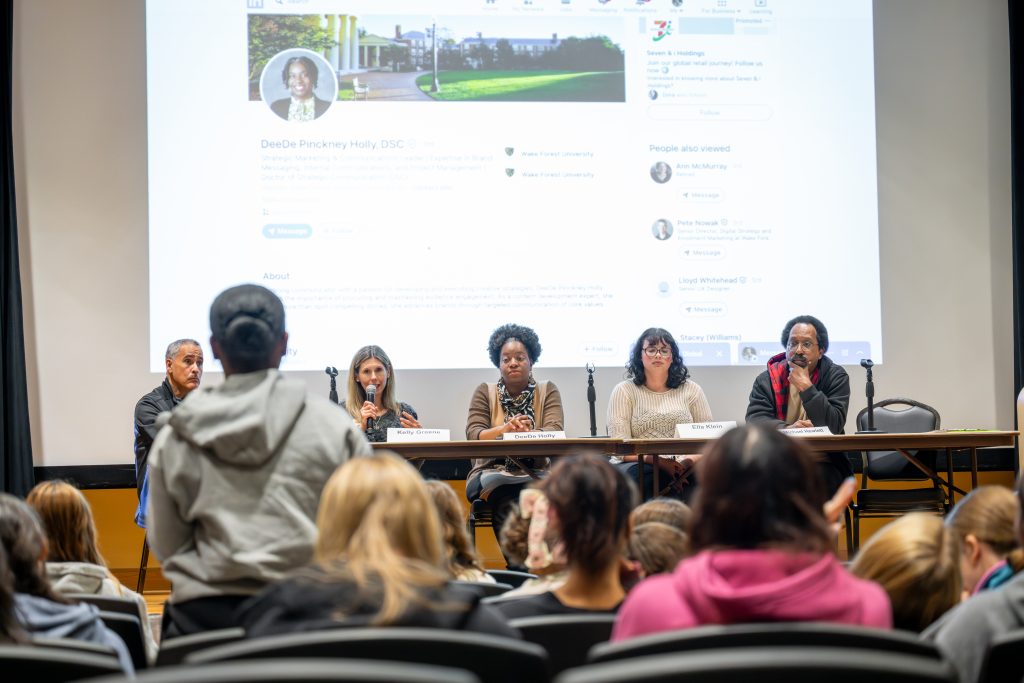
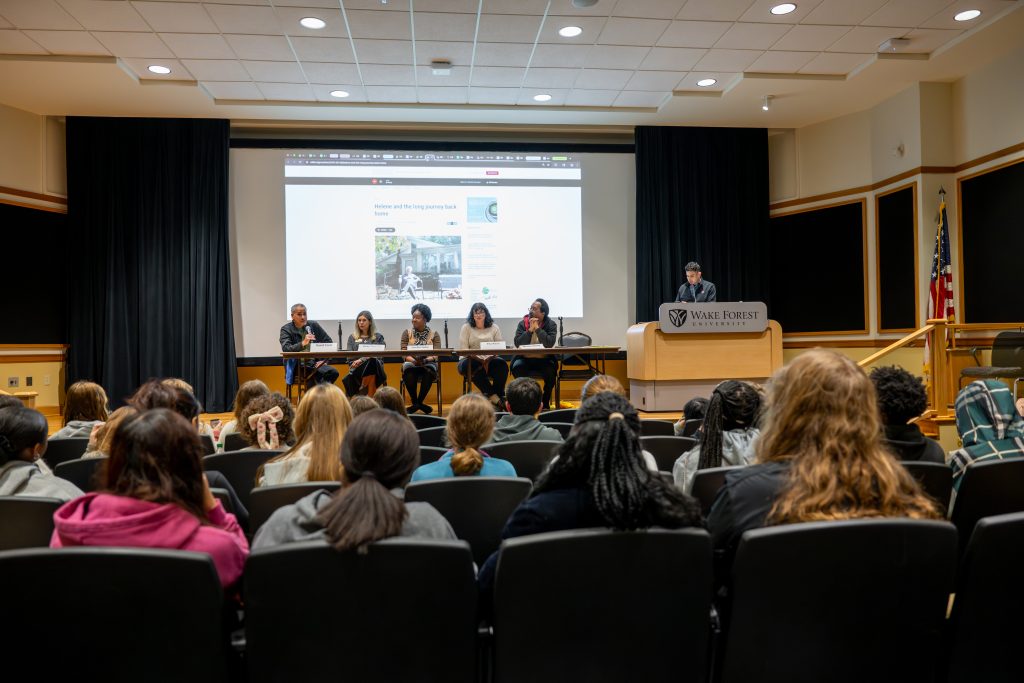
Students said they were inspired by the passion and dedication of the professionals they met. “It inspires me so much to hear about your work and dedication to providing a voice to people who are often looked over,” one student shared.
Students in Levine’s Radio 101 class will soon publish stories examining the impact of the recent WSFCS budget crisis that led to district-wide staff cuts. Students who complete Hunt’s journalism course can go on to write for Pine Whispers, Reynolds’ long-running student newspaper—a rarity among high schools today.
Through programs like HiveⓇ, WFDD staff and University communicators are helping students find their voices, build confidence, and imagine their futures—perhaps even as future Deacs—continuing the storytelling legacy that began with WFDD itself.
Categories: Community Impact
